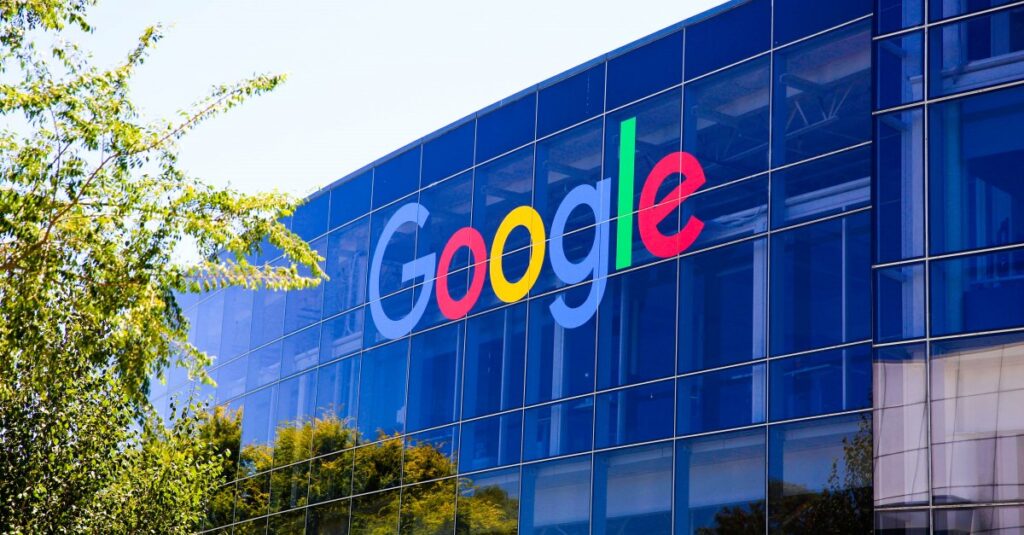
In recent years, we’ve seen technology evolve at a rapid pace. Among the biggest shifts is the disruption of the search market, driven by artificial intelligence (AI). Apple, a company traditionally associated with hardware like the iPhone and MacBooks, is now emerging as a key player in the digital search space, threatening to alter the landscape dominated by Google for over two decades. This shift is creating a ripple effect in the tech world, where companies are scrambling to develop and implement AI-powered solutions to keep up with the changing tides.
A New Challenge for Google’s Search Market Monopoly
For years, Google has been the undisputed king of the search engine market. With over 90% of global search engine market share, it has built an empire on its ability to deliver relevant results to billions of users every day. Google’s algorithms, which include sophisticated ranking systems like PageRank, have made it nearly impossible for competitors to surpass its dominance. But the rise of AI and the growing capabilities of companies like Apple are causing some analysts and industry observers to question how much longer this monopoly will last.
Unlike traditional search algorithms, which are designed to pull information based on keywords and patterns, AI-powered search tools are capable of understanding deeper context. AI allows for more personalized search results that can learn from user behavior over time, adapting to individual preferences and providing results that feel more intuitive. These next-generation search engines aren’t just processing queries; they are engaging in a dynamic process that includes analyzing user intent, considering their past searches, and even predicting what they are looking for before they type it in.
With Apple’s advancements in AI, particularly with its Siri virtual assistant, the company is positioning itself to compete in the search market. Although Siri has historically lagged behind Google Assistant and Amazon Alexa in terms of features and adoption, Apple’s growing investment in artificial intelligence indicates that this could soon change.
Apple’s Strategic Investments in Artificial Intelligence
Apple’s move into the AI sector is not just a recent trend; it’s been years in the making. The company has been steadily building its AI capabilities through strategic acquisitions, such as buying AI startups and hiring top talent in the field. These moves have allowed Apple to make significant strides in AI across a variety of domains, from natural language processing to computer vision.
One of the most notable advancements is Apple’s work on Siri, the voice assistant that powers its devices. While Siri may not have the same level of intelligence or capability as some of its competitors, it has continued to evolve and improve. Over time, Siri has been integrated into more devices and services, from iPhones and iPads to smart speakers and even the Apple TV. This expansion means that Apple is amassing an enormous amount of data on user interactions, providing a foundation on which they can build even more advanced AI systems.
Apple’s AI investments aren’t limited to Siri alone. The company is integrating AI into nearly every product it makes. For instance, machine learning algorithms help improve the accuracy of facial recognition on iPhones, while AI-powered features in Apple Maps are enabling more precise route predictions. These advancements provide Apple with deeper insights into user behavior and preferences, which can play a pivotal role in revolutionizing the search experience.
Apple’s data privacy focus also provides a distinct advantage in the age of AI. While Google has faced criticism over its data practices, Apple’s emphasis on protecting user privacy has garnered it a loyal customer base. Apple’s commitment to protecting user data while harnessing AI’s capabilities could give it an edge over Google in the search market, especially as privacy concerns continue to rise globally.
The Rise of AI Search Tools: What This Means for Google
As Apple continues to develop its AI capabilities, it’s clear that Google’s dominance in the search market is under increasing pressure. While Google has made its own strides in AI, integrating machine learning into search algorithms and introducing tools like Google Assistant, it may not be enough to fend off Apple’s growing influence.
The key difference between Apple’s approach and Google’s lies in how each company utilizes AI. Google’s search engine has always been designed to respond to explicit queries, relying heavily on keywords and contextual understanding. While Google’s search algorithms have become increasingly sophisticated, they are still largely driven by the structure of the internet itself—indexed pages, links, and rankings.
Apple, on the other hand, has the advantage of its hardware and ecosystem integration. iPhones, Macs, and other devices have always been designed to work seamlessly together, and AI-powered search can be embedded deeply into that ecosystem. Apple’s ability to understand user behavior across its devices—whether it’s an iPhone user searching for information or an Apple Watch user asking Siri for help—gives the company a comprehensive understanding of its customers. This holistic understanding could lead to search results that feel more personalized and contextually relevant than what Google currently provides.
As AI technology advances, the search landscape may shift from a keyword-based model to a more intuitive, conversational model, where the AI understands the broader context of a query. Apple’s work in AI has already begun to make this transition, and if they can extend these capabilities to search engines, the impact on Google could be significant.
How Google Could Respond: Increasing AI Investment
In response to this growing competition, Google is not resting on its laurels. The company has continued to pour resources into its AI-driven search models, focusing on improving user experience and enhancing its ability to understand natural language. One of Google’s key AI systems, RankBrain, has already been helping refine search results by interpreting the meaning behind search queries and offering more relevant results.
Additionally, Google has made significant strides in developing AI for voice search and virtual assistants, competing directly with Apple’s Siri and Amazon’s Alexa. Google Assistant, in particular, has become a popular option for users seeking a smarter, more conversational AI experience.
But despite its advancements, Google faces several challenges. Privacy concerns are at the forefront, with users becoming increasingly aware of how their data is being used by tech companies. Google has already faced backlash over its data collection practices, and the pressure to strike a balance between innovation and user trust is only intensifying. Apple’s privacy-first approach gives it a competitive advantage in this area, and Google will need to adapt if it wants to keep up.
Furthermore, Google’s reliance on advertising revenue from search results means that it may be more difficult for the company to pivot to a new model that focuses on user privacy and AI-powered search. Apple, by contrast, generates revenue primarily from hardware and services, giving it more freedom to experiment with new business models that prioritize user experience.
The Financial Impact: Google Stock and Market Reactions
As AI-driven search tools continue to evolve, the financial implications for Google could be substantial. For years, Google’s stock has been buoyed by its dominance in online advertising. The company makes the vast majority of its revenue from ads placed alongside search results. As the search market becomes more competitive, however, this revenue model could come under pressure.
Apple’s entry into the search market could significantly disrupt Google’s advertising revenue, especially if Apple’s AI-driven search tools become popular with users. A shift away from traditional search results could undermine Google’s ability to sell advertising on its platform, leading to a decline in revenue. If this were to happen, Google’s stock price could experience a downturn, as investors become wary of the company’s future growth prospects.
However, it’s important to note that Google is far from out of the game. The company has an enormous user base, a wealth of data, and a sophisticated advertising system that continues to generate massive revenue. Moreover, Google has shown time and again that it is capable of adapting to new challenges. Whether through acquisitions, innovations, or partnerships, Google is likely to continue evolving its offerings to maintain its position at the top.
The Broader Implications of AI in the Search Market
Apple’s rise in the AI space is part of a broader trend that is likely to transform entire industries. AI has the potential to redefine how we interact with technology, from how we search for information to how we make purchasing decisions and access entertainment. As AI tools become smarter and more personalized, they will change the very nature of the internet and how we navigate it.
The rise of AI-driven search tools also raises important questions about privacy, data security, and ethics. As companies like Apple and Google integrate AI into their search engines, they will need to address concerns about how user data is collected, stored, and used. Companies that can strike the right balance between innovation and privacy will be better positioned to succeed in the long run.
For consumers, the shift towards AI-powered search tools means a more personalized and efficient experience. AI can make online searches faster and more accurate, helping users find the information they need with less effort. However, this also comes with potential risks, including the potential for bias in search results and the possibility of companies using AI to manipulate users’ behavior.
Conclusion: The Future of Search and the Role of AI
As AI continues to advance, the search market is poised for significant disruption. Apple’s growing investments in AI and its focus on privacy could position the company as a formidable competitor to Google’s search dominance. Google, however, is not sitting idly by. With its own AI initiatives and vast resources, the company is likely to continue innovating in the search space.
The competition between Apple and Google in the AI-driven search market will have profound implications for the future of technology. As both companies push the boundaries of what AI can do, the search experience for users will continue to evolve. Whether this leads to a shift in market dominance remains to be seen, but one thing is clear: the future of search will be shaped by artificial intelligence, and both Apple and Google will play pivotal roles in this transformation.

